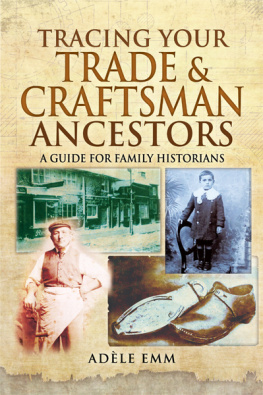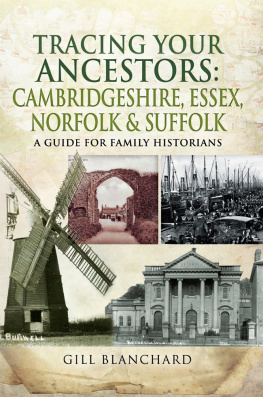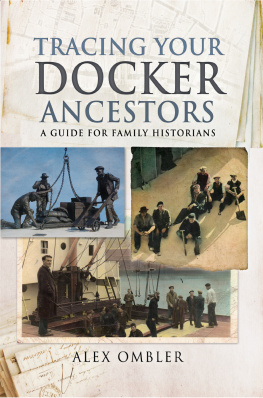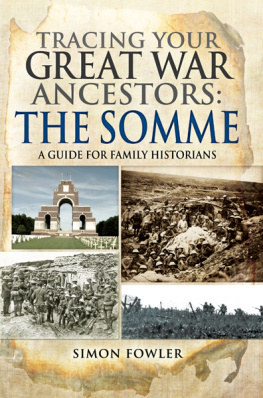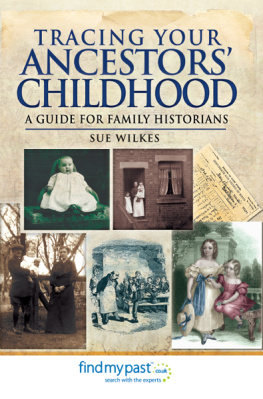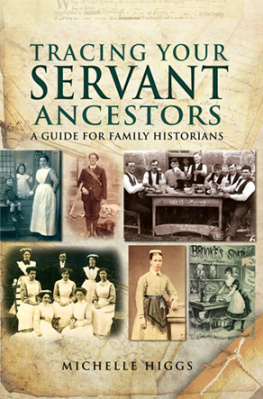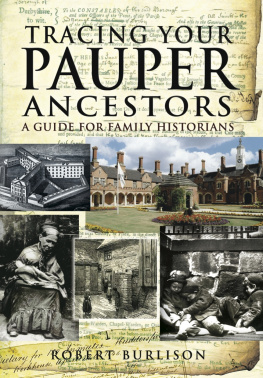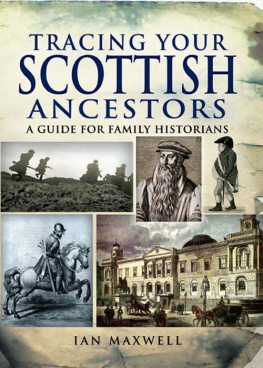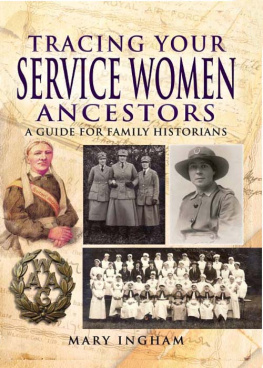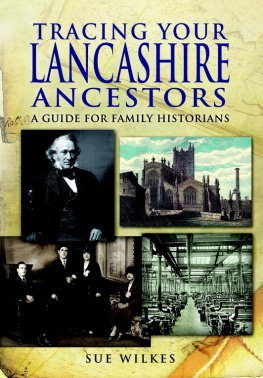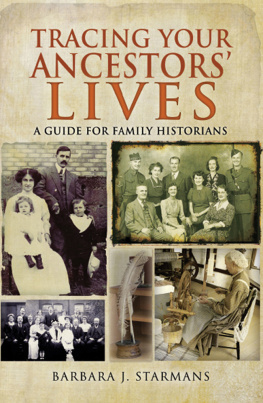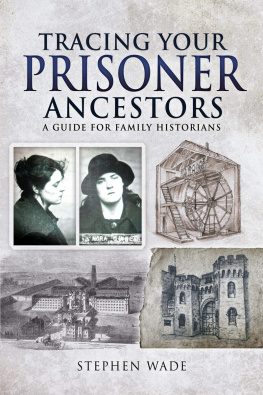TRACING YOUR FEMALE ANCESTORS
To Pasqualle and the late Sydney Emm
FAMILY HISTORY FROM PEN & SWORD
Tracing Secret Service Ancestors
Tracing Your Air Force Ancestors
Tracing Your Ancestors
Tracing Your Ancestors from 1066 to 1837
Tracing Your Ancestors Through Death Records
Tracing Your Ancestors Through Family Photographs
Tracing Your Ancestors Using the Census
Tracing Your Ancestors Childhood
Tracing Your Ancestors Parish Records
Tracing Your Aristocratic Ancestors
Tracing Your Army Ancestors 2nd Edition
Tracing Your Birmingham Ancestors
Tracing Your Black Country Ancestors
Tracing Your British Indian Ancestors
Tracing Your Canal Ancestors
Tracing Your Channel Islands Ancestors
Tracing Your Coalmining Ancestors
Tracing Your Criminal Ancestors
Tracing Your East Anglian Ancestors
Tracing Your East End Ancestors
Tracing Your Edinburgh Ancestors
Tracing Your First World War Ancestors
Tracing Your Great War Ancestors: The Gallipoli Campaign
Tracing Your Great War Ancestors: The Somme
Tracing Your Great War Ancestors: Ypres
Tracing Your Huguenot Ancestors
Tracing Your Jewish Ancestors
Tracing Your Labour Movement Ancestors
Tracing Your Lancashire Ancestors
Tracing Your Leeds Ancestors
Tracing Your Legal Ancestors
Tracing Your Liverpool Ancestors
Tracing Your London Ancestors
Tracing Your Medical Ancestors
Tracing Your Merchant Navy Ancestors
Tracing Your Naval Ancestors
Tracing Your Northern Ancestors
Tracing Your Pauper Ancestors
Tracing Your Police Ancestors
Tracing Your Prisoner of War Ancestors: The First World War
Tracing Your Railway Ancestors
Tracing Your Royal Marine Ancestors
Tracing Your Rural Ancestors
Tracing Your Scottish Ancestors
Tracing Your Second World War Ancestors
Tracing Your Servant Ancestors
Tracing Your Service Women Ancestors
Tracing Your Shipbuilding Ancestors
Tracing Your Tank Ancestors
Tracing Your Textile Ancestors
Tracing Your Trade and Craftsmen Ancestors
Tracing Your Welsh Ancestors
Tracing Your West Country Ancestors
Tracing Your Yorkshire Ancestors
TRACING YOUR FEMALE ANCESTORS
A Guide for Family Historians
Adle Emm
First published in Great Britain in 2019
PEN & SWORD FAMILY HISTORY
an imprint of
Pen & Sword Books Ltd
Yorkshire Philaddelphia
Copyright Adle Emm, 2019
ISBN 978 1 52673 013 8
eISBN 978 1 52673 014 5
Mobi ISBN 978 1 52673 015 2
The right of Adle Emm to be identified as Author
of the Work has been asserted by her in accordance
with the Copyright, Designs and Patents Act 1988.
A CIP catalogue record for this book is
available from the British Library.
All rights reserved. No part of this book may be reproduced or
transmitted in any form or by any means, electronic or mechanical
including photocopying, recording or by any information storage
and retrieval system, without permission from the Publisher in writing.
Pen & Sword Books Ltd incorporates the imprints of Pen & Sword
Airworld, Archaeology, Atlas, Aviation, Battleground, Discovery, Family
History, Fiction, History, Maritime, Military, Military Classics, Politics,
Select, Social History, True Crime, Frontline Books, Leo Cooper,
Remember When, Seaforth Publishing, The Praetorian Press,
Wharncliffe Local History, Wharncliffe Transport,
Wharncliffe True Crime and White Owl.
For a complete list of Pen & Sword titles please contact
PEN & SWORD BOOKS LTD
47 Church Street, Barnsley, South Yorkshire, S70 2AS, England
E-mail:
Website: www.pen-and-sword.co.uk
or
PEN & SWORD BOOKS LTD
1950 Lawrence Rd., Havertown, PA 19083, USA
E-mail:
Website: www.penandswordbooks.com
PREFACE
What women take for granted today; access to the professions, equal pay (still under discussion), equal opportunities (ditto), universal healthcare, safe childbirth and ownership of property was, for our grandmothers and great grandmothers, wishful thinking. In many northern cities more women had jobs, albeit unskilled, than their husbands but still juggled responsibility for a large family, cooking, household cleaning and laundry.
A woman took her fathers surname at birth, her husbands on marriage and was formally identified by his initials. Should a spouse die, widows and widowers often remarried through necessity of child care and financial support. Each successive marriage produced more children, making it difficult to unravel the female side of our family tree.
Society has come a long way, and this book follows the path travelled by our female ancestors, both the privileged minority and their working-class sisters. It covers the period from 1815, when Britain was plunged into economic crisis following the end of the Napoleonic Wars, to 1914, the start of the First World War, an event which irrevocably changed everyones lives, especially womens.


